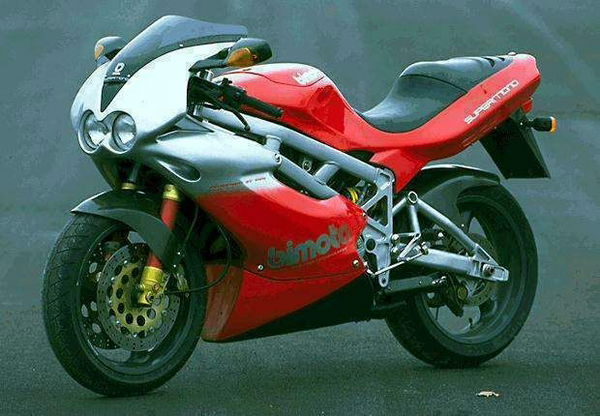A new rider’s guide to motorcycle kit and clothing
If you are new to the world of motorcycling and finding the world of motorcycle kit and clothing bewildering – this guide is for you!

PASSING your CBT, A2, or full A licence is one of the most rewarding things most people will ever do on two-wheels. The immediate sense of freedom and achievement that comes from riding a motorcycle on your own for the first time is very hard to beat.
But now you have a new challenge, you have to get yourself kitted out with riding gear to get you through the winter commutes and through into the spring! But where do you start?!
This guide is going to take you through the different types of kit you can buy and help you to decide which is the right one for you.
First off, let's look at the only piece of motorcycle kit that is a legal requirement…
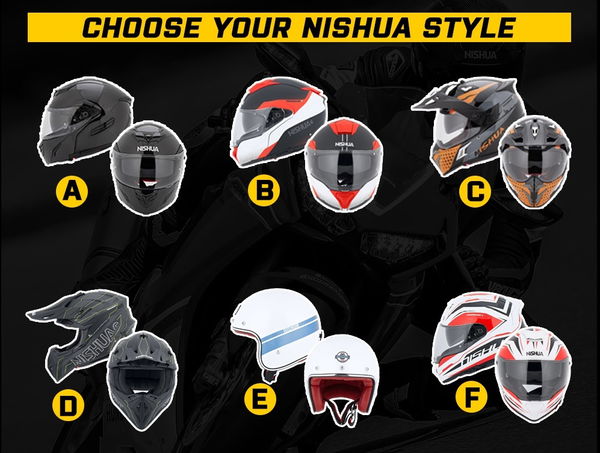
How to choose your first motorcycle helmet
When buying a helmet, it’s best to get one that fits the type of riding you are going to be doing. An adventure or motocross lid may look cool, but it’ll be bloody draughty on a winter commute down the dual carriageway!
Once your set on the type of lid you’re going for, try and figure out which brand best suits your head-shape. Yep, that’s right, all helmet manufacturers use slightly different head-form moulds, meaning one brand may suit you and one brand may not!
Then before placing your cash on the counter or slipping your card into the machine, you need to check the Sharp rating of the lid you’re looking to buy – a link to the Sharp website can be found here. The Sharp website allows you to find your helmet and see ratings and data from a series of impact tests carried out on it. No point spending hard-earned cash on a lid that is going to offer little or no protection!
For a helmet to provide you with the highest level of protection, it has to fit you perfectly. Go by the sizing guide on the brand’s website to start with, if there are any issues with the fit of the lid, don’t wear it, get it back to the shop, and get the correct fit. An ill-fitting lid will not only not provide you with the protection it should, it’ll also be massively uncomfortable and can cause pressure sores and tension headaches.
Finally – and most importantly – Do not buy a helmet from a website that shows branded lids at hugely discounted prices.
There are numerous scam sites popping up with many of them operating through social media. Go to a reputable motorcycle shop that is well known and with good reviews.
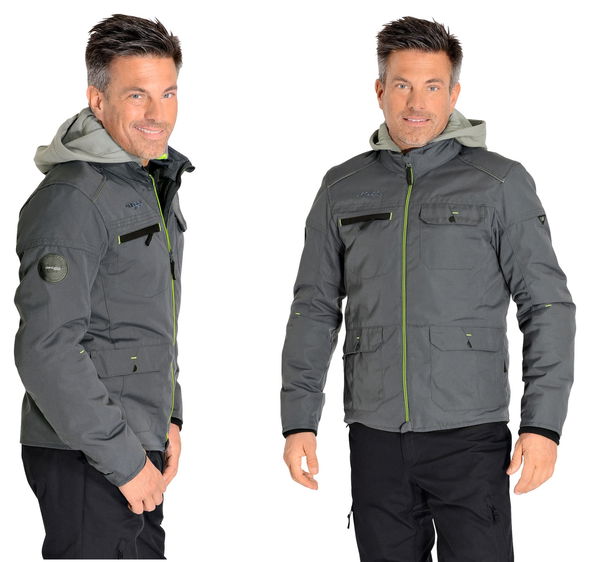
How to choose the right motorcycle clothing
If you thought choosing a helmet was complex, you might want to sit down!
First off, it’s always important to remember, motorcycle protective clothing has three main purposes – to protect you in a fall, to keep you warm, and to keep you dry. Styling and price come after these three elements have been dealt with.
If you are reading this now, the chances are you’re going to be riding in winter, so keeping warm and dry is vital. If you get cold while riding, you’ll not be concentrating as hard and there is northing worse than getting soaked half way through a journey on a motorcycle.
Like buying a helmet, you should be getting the best kit you can afford, although if your commute is two, or three miles a day, a £2,000 textile suit is probably going to be a bit of a waste! Likewise, it’s not going to be sensible to commute forty miles along dual carriageways through winter in some textile jeans and a perforated leather jacket!
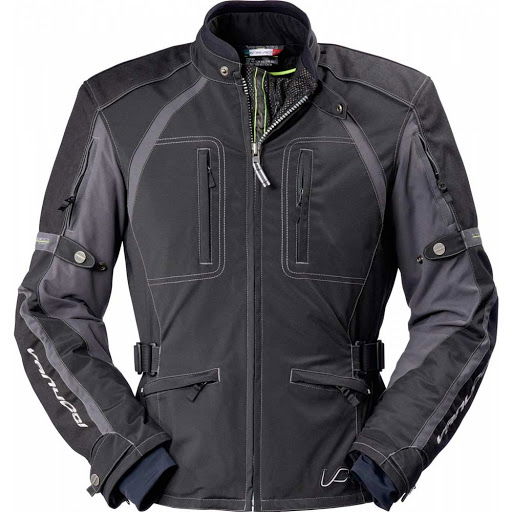
Textiles
Textiles are a bit of an all-season solution for riding a motorcycle. They can keep you warm and dry in winter and thanks to removable layers can be worn in the summer too. While most textiles offer fantastic protection in a fall, they can never match the levels of abrasion resistance of a cow or kangaroo hide suit.
If you are riding through winter in textiles, try to get a laminated jacket, with a Gore-Tex membrane within the outer of the jacket. These types of textiles can be more expensive although they dry out quicker, provide better protection from the elements, and tend to be lighter than a lesser jacket.
It’s always advisable to use some decent base-layers beneath your textiles to ensure you stay comfortable and warm.
To check out textile jackets, click here.
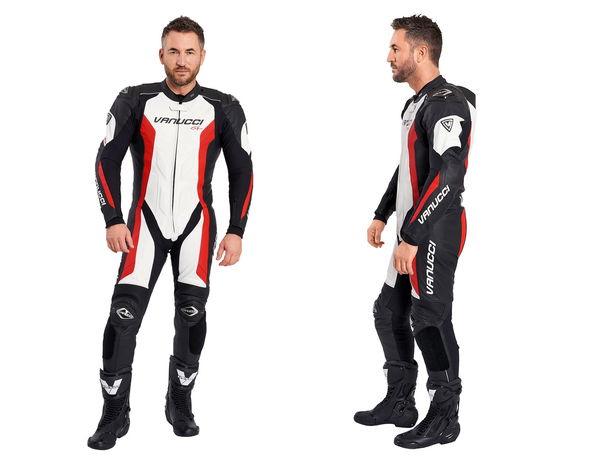
Leathers
The chances are that for a commute through winter, you’re going to have to buy some serious thermal base layers or have a very short commute! Either way, the leather suite option isn’t the best way to go for winter.
It’s not just the cold your going to feel either. The salt and grit used on the road in winter can seriously erode and damage the chemical bonds within the leather, ruining its waterproof properties and reducing the level of protection is provides.
For a selection of one and two-piece leathers, click here.
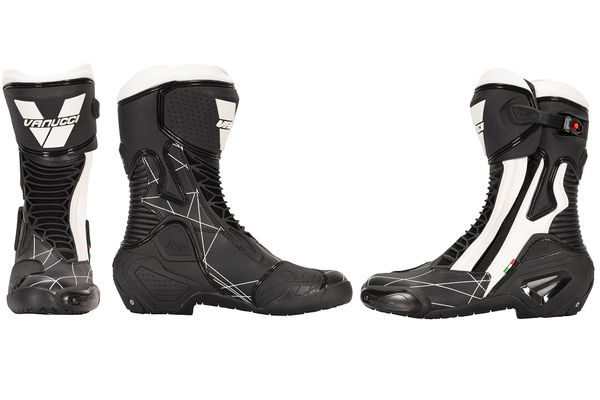
Motorcycle boots
Generally speaking, the best boots for general commuting and short rides tend to be touring boots. They’re normally waterproof, offer high levels of protection, and will be comfortable enough to wear while you’re off the bike too.
Sports boots may look great, but they are honed for track use, and will normally be full of vents and perforations to keep the rider’s feet cool. Great on track – not so good when filtering along the A14 in the rain!
To see a range of motorcycle boots covering everything from short, casual boots to full adventure and touring boots, click here.
Motorcycle gloves
When choosing gloves, go with the advice mentioned above. Touring motorcycle gloves are a great place to start. They are designed to be used for long durations, in all weather, and on a range of different types of bikes.
CE approval and counterfeit kit
As with the advice above for motorcycle helmets, always buy your kit from a reputable motorcycle clothing retailer, with a proven record of delivering quality kit at the right price. Avoid websites that are offering motorcycle kit at massively discounted prices and be wary when clicking on Facebook adverts that advertise this.
Next up, make sure the kit you are buying is listed as Motorcycle PPE and that it has the appropriate CE markings.
